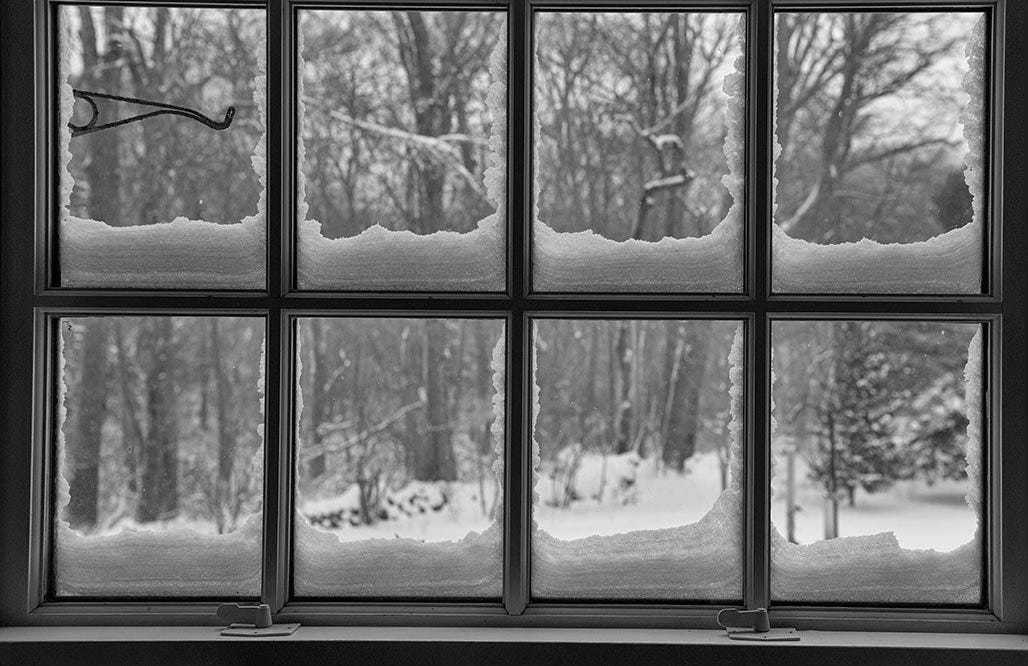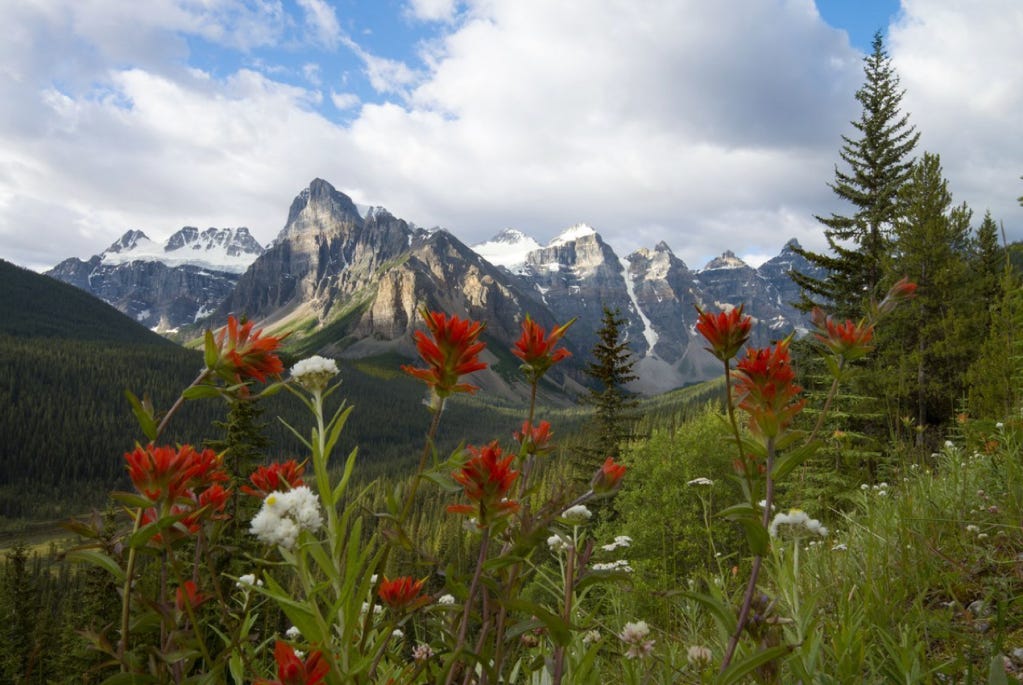Two Windows To Seeing The First Snow Fall
I'm going to be honest here, after 29 years of being in a wheelchair, I hate winter. Sorry for being so blunt but, every year seems to be just a little bit harder then the last. I don't think anyone with a physical disability really truly embraces the season with open arms, either. So what are we to say as we scroll through all those social feeds and see the first snowfall pictures everyone shares with such enthusiasm?
As I look out my office window at our freshly snow covered grass and fenceline, let me suggest two windows to which we might see the first signs of snowy winter.
A Window To Present Beauty
There seems to be something in our nature where the mundane of everyday seemingly blinds us to beauty in life. You pass by the same window that frames the same tree that is in the same school park by the same grassy field everyday. Soon, you barely even look out that window anymore as you really have no expectations of it looking any different.
Life with physical disabilities can be rather similar; particularily if you spend most of your time dealing with health issues while confined to your home. Winter and snow only becomes a stark physical reminder of just how much harder it is going to be to get around outside to your doctor's appointments. Or, a symbolic reflection of the freezing of your joints and the discomfort of arthritic pain settling into your shoulders and neck after fighting to push through wet snowy sidewalks while wearing a heavy coat. Or, a picture of the cold isolation of lonliness when it becomes just too impossable to leave your home at all. Winter sucks the beauty out of life. Or so it seems.
"There is perhaps no action more significant," Callid Keefe-Perry riminds me, "than God's infinite becoming and the ways in which that becoming is revealed to us in [the beauty] of the world." His words reveal a certain physical truth that comes with each new snowfall, beauty can be discovered by welcoming a newness to our rooted landscape. The crisp air awakens the senses to feel the changes God is bringing to the creation around us and fills us with wonder.
The discovery of beauty is not necesarily always easy and it can take work. Some mornings I have to set my agenda aside while grabbing a coffee and sitting still at the nook table while looking out at the school field behind my home. I take notice of how much brighter everything seems following last night's snowfall. The trees seem to glisten as the sun rays reflect off of the branches covered in frost. It seems almost entertaining taking notice of the new tracks the kids have left behind them in the snow as they work their way to school. Stillness allows my brain to work past the tramas and anguish of my uncoopertive body to see the beauty present around me.
A Window To Hope
While I sit looking out that same nook window at the present reality of beauty, I also see a second window of hope to the future coming of spring. K.J. Ramsey transends present realities when she describes that by:
"Directing your eyes to take in the panorama in front of you can turn off the switch in your brainstem that is flooding your body with too much vigilance and alertness. By directing our vision back to a wider view, we help our bodies remember where we are and who we are... Looking up allows us to look out into the world where there is still one who remains so faithful to us that we don't have to attempt to make ourselves or our communities safe by silencing our hard stories and sensations."
— The Lord Is My Courage: Stepping Through the Shadows of Fear Toward the Voice of Love by K.J. Ramsey
One of my favorite pictures hanging in my basement is of Kananaskis Park's 'The Valley Of The Ten Peaks'. Sometimes I like starring at it while taking in the details — the colors, textures, and imagined scents — of the flowers in the eminant forefront of the photo. But I also begin to let that forefront blur and fade out while gazzing at the amazing vastnmess of discovery waiting in the background — the mountain scapes, the hidden lakes, the views from the snow peaks.
Winter and the first snowfall can be a time for us who face the struggles of physical disabilities to practice contemplative stillness while finding hope for the plans of spring. If I sit long enough, I begin to notice that first snow fall slowly melting. Drips of water begin streaming down from the railing around my deck. And I know that just as fast as the cold has come in, there is warmer weather coming.
So as I try to sit and look out these two windows of emminent beauty and transcendent hope, I give thanks to a God who's patience allows me the wrestling thoughts to which I have while seeing the first snow fall.
The First Snowfall
The snow had begun in the gloaming,
And busily all the night
Had been heaping field and highway
With a silence deep and white.Every pine and fir and hemlock
Wore ermine too dear for an earl,
And the poorest twig on the elm-tree
Was ridged inch deep with pearl.From sheds new-roofed with Carrara
Came Chanticleer's muffled crow,
The stiff rails were softened to swan's-down,
And still fluttered down the snow.I stood and watched by the window
The noiseless work of the sky,
And the sudden flurries of snow-birds,
Like brown leaves whirling by.I thought of a mound in sweet Auburn
Where a little headstone stood;
How the flakes were folding it gently,
As did robins the babes in the wood.Up spoke our own little Mabel,
Saying, 'Father, who makes it snow?'
And I told of the good All-father
Who cares for us here below.Again I looked at the snowfall,
And thought of the leaden sky
That arched o'er our first great sorrow,
When that mound was heaped so high.I remembered the gradual patience
That fell from that cloud like snow,
Flake by flake, healing and hiding
The scar that renewed our woe.And again to the child I whispered,
'The snow that husheth all,
Darling, the merciful Father
Alone can make it fall! 'Then, with eyes that saw not, I kissed her;
And she, kissing back, could not know
That my kiss was given to her sister,
Folded close under deepening snow.— 'The First Snowfall' By James Russell Lowell




